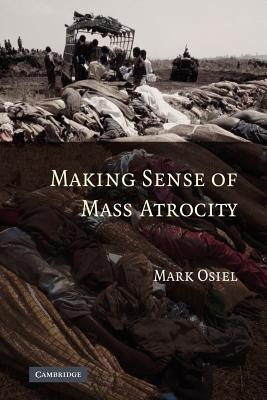
- We will send in 10–14 business days.
- Author: Mark Osiel
- Publisher: Cambridge University Press
- ISBN-10: 1107403189
- ISBN-13: 9781107403185
- Format: 15.2 x 22.9 x 1.5 cm, softcover
- Language: English
- SAVE -10% with code: EXTRA
Reviews
Description
"Who done it?" is not the first question that comes to mind when one seeks to make sense of mass atrocity. So brazen are the leader-culprits in their apologetics for the harms, so wrenching the human destruction clearly wrought, meticulously documented by many credible sources. Yet in legal terms, mass atrocity remains disconcertingly elusive. The perversity of its perpetrators is polymorphic, impeding criminal courts from tracing true lines of responsibility in ways intelligible through law's pre-existing categories, designed with simpler stuff in mind.
Genocide, crimes against humanity, and the worst war crimes are possible only when the state or other organizations mobilize and coordinate the efforts of many people. Responsibility for mass atrocity is therefore always widely shared, often by thousands. Yet criminal law, with its liberal underpinnings, insists on blaming particular individuals for isolated acts. Is such law therefore constitutionally unable to make any sense of the most catastrophic conflagrations of our time? Drawing on the experience of several recent prosecutions (both national and international), this book trenchantly diagnoses law's limits at such times and offers a spirited defense of its moral and intellectual resources for meeting the vexing challenge of holding anyone criminally accountable for mass atrocity. Just as today's war criminals develop new methods of eluding law's historic grasp, so criminal law flexibly devises novel responses to their stratagems. Mark Osiel examines several such recent legal innovations in international jurisprudence and proposes still others.
EXTRA 10 % discount with code: EXTRA
The promotion ends in 14d.12:32:57
The discount code is valid when purchasing from 10 €. Discounts do not stack.
- Author: Mark Osiel
- Publisher: Cambridge University Press
- ISBN-10: 1107403189
- ISBN-13: 9781107403185
- Format: 15.2 x 22.9 x 1.5 cm, softcover
- Language: English English
"Who done it?" is not the first question that comes to mind when one seeks to make sense of mass atrocity. So brazen are the leader-culprits in their apologetics for the harms, so wrenching the human destruction clearly wrought, meticulously documented by many credible sources. Yet in legal terms, mass atrocity remains disconcertingly elusive. The perversity of its perpetrators is polymorphic, impeding criminal courts from tracing true lines of responsibility in ways intelligible through law's pre-existing categories, designed with simpler stuff in mind.
Genocide, crimes against humanity, and the worst war crimes are possible only when the state or other organizations mobilize and coordinate the efforts of many people. Responsibility for mass atrocity is therefore always widely shared, often by thousands. Yet criminal law, with its liberal underpinnings, insists on blaming particular individuals for isolated acts. Is such law therefore constitutionally unable to make any sense of the most catastrophic conflagrations of our time? Drawing on the experience of several recent prosecutions (both national and international), this book trenchantly diagnoses law's limits at such times and offers a spirited defense of its moral and intellectual resources for meeting the vexing challenge of holding anyone criminally accountable for mass atrocity. Just as today's war criminals develop new methods of eluding law's historic grasp, so criminal law flexibly devises novel responses to their stratagems. Mark Osiel examines several such recent legal innovations in international jurisprudence and proposes still others.


Reviews